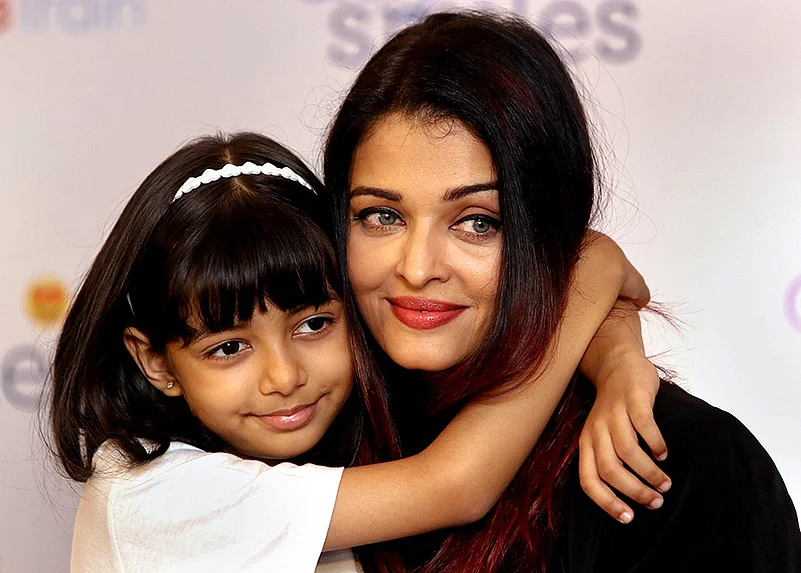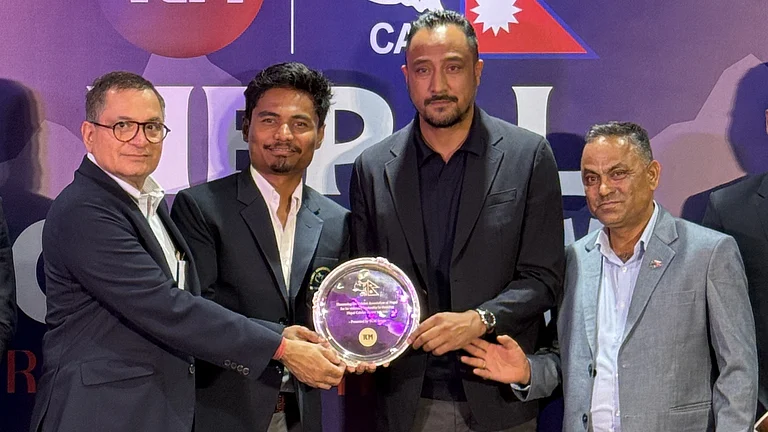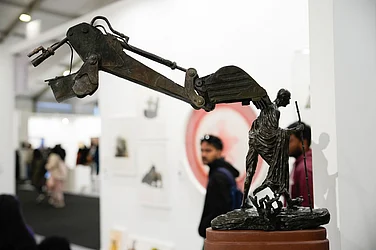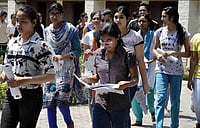Four members of the Bachchan family—Amitabh Bachchan, Abhishek Bachchan, Aishwarya Rai Bachchan, and her daughter Aaradhya—have tested positive for Covid-19. On July 12, Aishwarya and Aaradhya too tested positive. The announcement came hours after the two were reported to have tested negative for the virus. Jaya Bachchan’s tests, however, came negative.
Reports said Jaya, Aishwarya and Aaradhya tested negative in the rapid antigen test. Later, their swab samples were taken for RT-PCR test, and the results came positive. It is not clear whether the father-son duo also took the antigen tests initially. Nanavati Hospital in Mumbai, where both are admitted, refused to divulge any information.
Vishwas Mote, assistant municipal commissioner of BMC’s K-West ward, where the Bachchan family resides, told Outlook, “We didn’t conduct the test. Only the hospital can give you the correct information.”
Outlook reached out to Nishant Jaiswal, General Manager, Operations, Nanavati Super Specialty Hospital, but he refused to comment.
This case highlights a serious anomaly in testing norms. Indian Council of Medical Research (ICMR) in its guidelines on antigen tests on June 14 said that all negative cases should be reconfirmed with the RT-PCR test. However, 10 days later, the ICMR in an advisory said that those who test negative for Covid-19 by rapid antigen test should be definitely tested sequentially by RT-PCR to rule out infection, whereas a positive test should be considered as a true positive and does not need reconfirmation by RT-PCR test.
How Does Antigen Test Work?
Broadly divided, there are two categories of Covid-19 tests. The first category includes RT-PCR, TrueNat, CBNAAT and Antigen test—these tests can detect the virus in the body. The second category - called serologic test - can detect antibodies produced in the human body to protect it against the virus.
While the tests under the first category can determine if the person is infected currently, the serology test can only tell if the person was infected in the past.
“Antigen test is also the detection of the virus in the body, but it varies from other tests. The antigen is a substance (part of the virus) which incites an immune response. So, if the nasal or throat swab shows the presence of antigen, it means the person is infected,” said Rahul Bhargava, Director of Hematology & Bone Marrow Transplant, Fortis Hospital, Gurgaon.
While the RT-PCR test involves several steps and produces results within five to six hours, an antigen test can give results within 30 minutes. Antigen test costs Rs 450 while an RT-PCR costs Rs 2,400. But the antigen test has a problem with accuracy. Besides, it requires trained microbiologists, operating in sterile laboratory conditions, and involves complications of specimen collection and cold-chain logistics that use up scarce healthcare resources.
Why Experts Do Not Recommend Antigen Test
Several companies approached ICMR to get approval for their antigen kit but the medical body has approved only one company, SD Biosensor, which manufactures Standard Q COVID-19 Ag kit.
ICMR’s study shows that Standard Q COVID-19 Ag kit can detect an uninfected person as negative in almost 100 per cent cases. However, it can diagnose only 50 per cent infected person as positive. This means that if out of 100 people, 90 are uninfected, and 10 infected, it can show five as positive and rest all negative. So, 90 are truly negative and five are false negative.
Due to this anomaly, experts believe, all 95 ideally should go for RT-PCR test. But ICMR says that only those who have Covid-19 symptoms but are diagnosed negative in antigen test should go for RT-PCR test.
“It is a very problematic test and should not replace the RT-PCR test at all. It gives a lot of false negatives. For correct report, RT-PCR test is required,” said Dr Ramanan Laxminarayan, Director of the US-based Center for Disease Dynamics, Economics and Policy.
“I don’t understand why ICMR pushed this test for Covid-19,” he added.
Harsh Mahajan, MD, Chairman, Mahajan Imaging said that all negatives ideally should undergo RT-PCR test. “It would be desirable to also pick up asymptomatic false negatives as they can spread disease being unaware that they are positive,” Mahajan said.
According to Bhargava, “Antigen test could be a roadblock in picking up asymptomatic Coronavirus carriers as it gives 50% false negatives which, if not checked by RT-PCR, can lead to missing many positive cases. It needs to be carefully used among the high-risk population.”
SRL Diagnostics, which has begun antigen testing in Mumbai, Delhi-NCR, and Bangalore, says that antigen tests help in providing quicker results, but RT-PCR remains the gold standard procedure in detecting the infection.
ICMR spokesperson Rajnikant Srivastava didn't respond to Outlook's query.




















.jpg?w=200&auto=format%2Ccompress&fit=max)

_550_550.jpg?w=200&auto=format%2Ccompress&fit=max)



